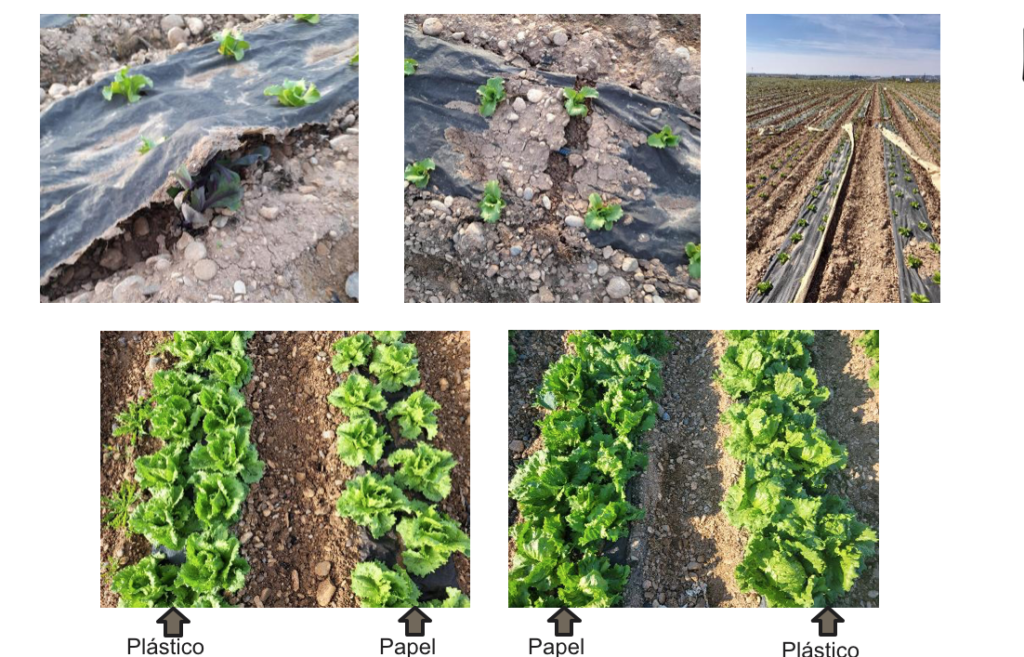After an exhaustive characterisation of the agricultural paper mulch, LIFE AgroPaper® has enabled intensive field trials for the use of AgroPaper® with two main actions. The first one has been a series of trials carried out in plots under plastic and plots under paper. The second one, the validation process for 5 selected crops, climates and locations.
The second action is described below:
2 – Validation for 5 selected crops, climates and locations
After readjusting the characteristics and properties of the agricultural paper according to the results obtained in the previous action, the analysis of productivity and soil quality (based on the degradability of the paper) has been included with these factors:
– Incorporation of Agropaper®, before use, into the soil
– Incorporation of paper residues (“paper waste”) into the soil;
– Leave the “paper residues” on top of the soil as mulching;
– Incorporate only a part of the paper waste into the topsoil and leave the rest as mulching.
For the validation of Agropaper®, in addition to the trials carried out by the partners, CEBAS-CSIC proposed an additional field trial, under fairly controlled conditions, where all the variables could be managed and the experiment could be rigorously controlled.

This field trial was carried out in Mula (Murcia) in an experimental farm.
The aim of the trial was to validate the AgroPaper® mulch in typical Mediterranean conditions (the area most represented in the project).
AgroPaper® was tested in comparison with a biodegradable plastic, a conventional plastic and bare soil. The experiment was conducted from May to September 2022.
The crop implemented was iceberg lettuce (this crop was tested in France and Spain; both in the North -Navarra- and in the South -Murcia- of Spain).
Conclusions
Agronomic
AgroPaper® is a good competitor to conventional, biodegradable plastic for vegetable crops in warm and mild climatic conditions. Good yield, biomass and lettuce size were observed with AgroPaper®.
Resistance
The degradation of biodegradable plastic, once buried in soil, was faster than that of paper. The maximum degradation of paper occurred after 64 days.
Environmental aspects
Evolution of organic C in the soil: an increase in organic C content, and therefore in total organic matter, was observed in the soil with AgroPaper® towards the end of the experiment, associated with the degradation of the paper.
Biochemical and microbiological parameters
A higher enzyme activity is observed in the soil with the paper after 45 days of testing.
At the metagenomic level, it is observed that the microbial community of the soil with AgroPaper® varies little from that of the control soil or “natural soil”, whereas the plastic materials negatively affect the bacterial and fungal communities of the soil, in terms of richness, biodiversity and structure of the microbial communities.
Finally, the presence of microplastics in the soil that has been covered with conventional plastic is highlighted. The performance of AgroPaper® is the most suitable mulch in terms of its contribution to the reduction of plastic pollution.
We recall that the international LIFE AgroPaper® project is focused on reducing the use of plastic mulch in agriculture by replacing it with 100% biodegradable and compostable mulching paper. With the information collected, some of the main properties of the paper have been modified throughout the project.
This project is financially supported by the LIFE programme of the European Union under the reference: LIFE 19 ENV/ES/000404.

